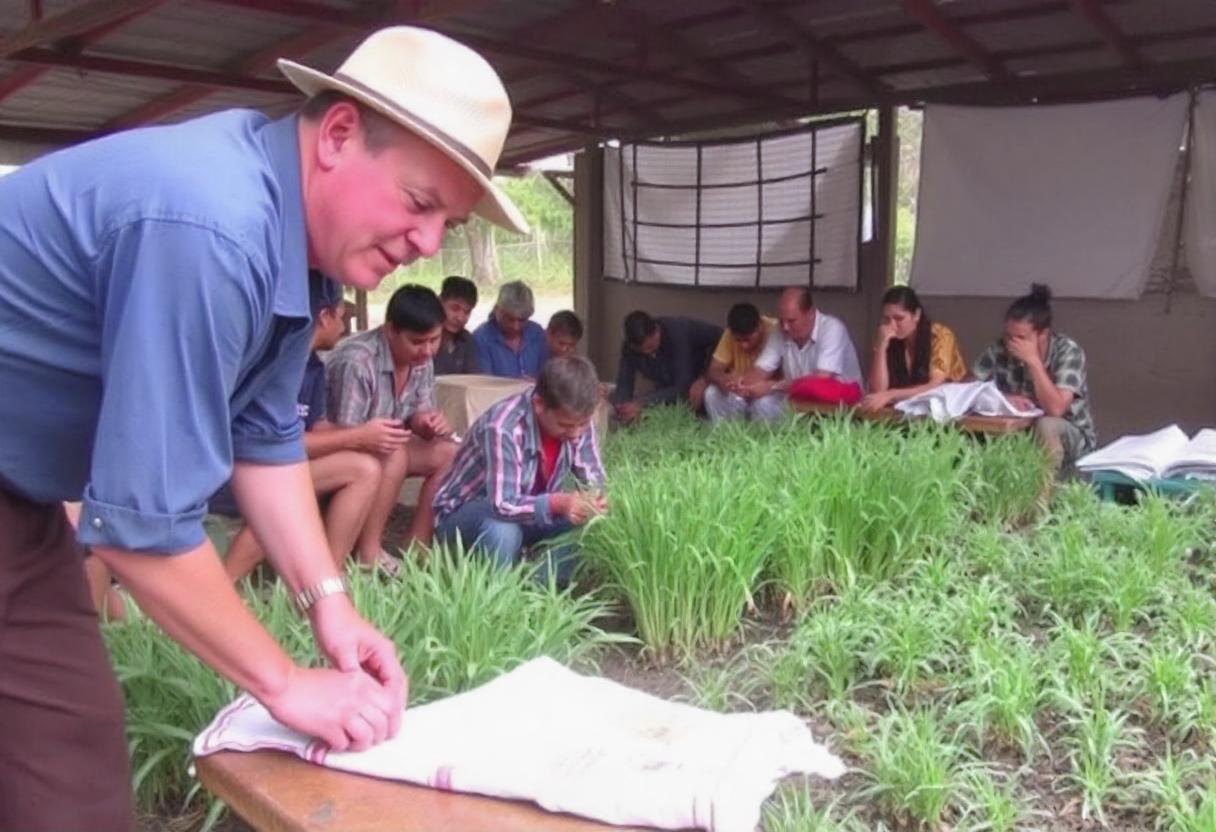
What is Agriculture?
Agriculture is the practice of cultivating soil, growing crops, and raising animals for food, fiber, and other products used to sustain and enhance human life. It involves various activities including planting, harvesting, and animal husbandry. Agriculture is a fundamental part of human civilization and plays a key role in providing food and resources.
Why is Agriculture Important?
Agriculture is crucial for several reasons:
- Food Supply: It provides the food necessary for human survival and nutrition.
- Economic Development: It contributes significantly to the economy, especially in rural areas.
- Employment: It generates jobs for millions of people worldwide.
- Raw Materials: It supplies raw materials for various industries, including textiles and biofuels.
What are the Main Types of Agriculture?
The main types of agriculture include:
- Subsistence Agriculture: Farmers grow enough food to meet their family’s needs with little surplus for trade.
- Commercial Agriculture: Focuses on producing crops and livestock for sale in the market rather than for personal consumption.
- Industrial Agriculture: Involves large-scale production using advanced technology and machinery to maximize output and efficiency.
- Organic Agriculture: Emphasizes the use of natural fertilizers and pest control methods without synthetic chemicals.
What are Some Common Farming Practices?
Common farming practices include:
- Plowing: Preparing the soil for planting by breaking it up and turning it over.
- Sowing: Planting seeds in the soil to grow crops.
- Irrigation: Providing water to crops through various methods like sprinklers or drip systems.
- Harvesting: Gathering mature crops from the fields once they are ready.
What is the Role of Technology in Agriculture?
Technology plays a significant role in modern agriculture by:
- Improving Efficiency: Using machinery and automation to enhance productivity and reduce labor.
- Precision Farming: Employing GPS and data analysis to optimize planting, irrigation, and harvesting.
- Genetic Engineering: Developing crop varieties with improved resistance to pests and diseases.
- Sustainable Practices: Implementing technologies that reduce environmental impact and conserve resources.
What are the Challenges Faced in Agriculture?
Agriculture faces several challenges including:
- Climate Change: Affecting weather patterns and crop yields.
- Soil Degradation: Resulting from over-farming and poor land management practices.
- Water Scarcity: Limited water resources impacting irrigation and crop production.
- Pest and Disease Management: Controlling pests and diseases that can damage crops and livestock.
How Can Agriculture be Made More Sustainable?
Sustainable agriculture practices include:
- Crop Rotation: Alternating crops in a field to maintain soil health and reduce pests.
- Conservation Tillage: Minimizing soil disturbance to protect soil structure and reduce erosion.
- Organic Farming: Avoiding synthetic chemicals and promoting biodiversity.
- Water Conservation: Using efficient irrigation techniques and managing water resources responsibly.